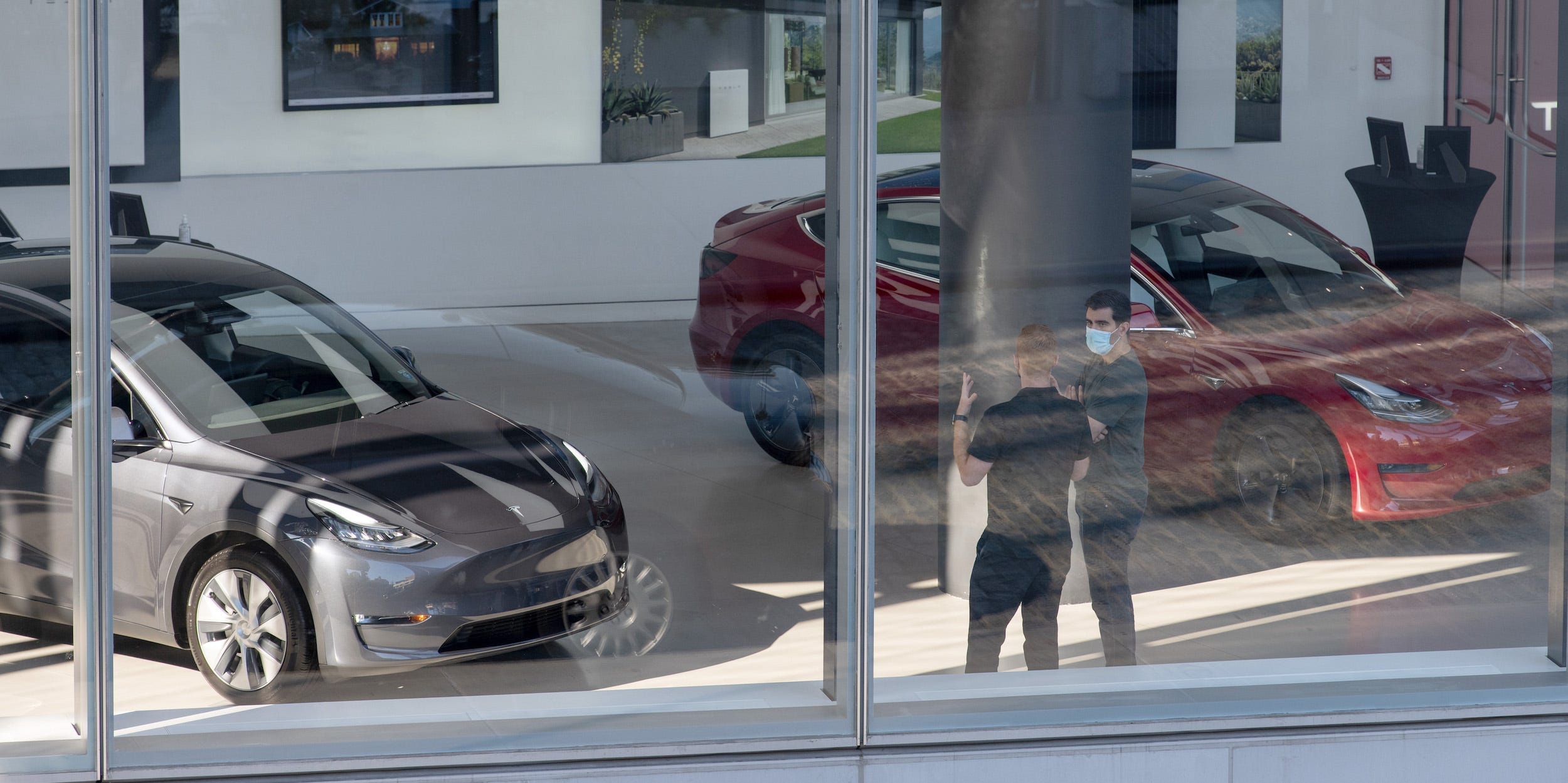
Alexi Rosenfeld/Getty Images
- Roughly 9% of subprime auto borrowers were more than 60 days delinquent in the fourth quarter.
- Such borrowers are at the highest risk of default and tend to hold vulnerable financial positions.
- The government froze student-loan interest and evictions, but there's little relief for those with auto loans.
- See more stories on Insider's business page.
The pandemic's uneven economic fallout is now showing up in car loan payments – especially in their absence.
More than 9% of subprime auto borrowers – those classified as having a higher risk of default – were over 60 days delinquent in the fourth quarter of 2020, according to TransUnion data cited by The Wall Street Journal. That means a lot of people just can't pay off their car loans right now.
That share is the highest since 2005, just before a wave of mortgage defaults sparked the global financial crisis. Separately, 10.9% of subprime borrowers with car loans were more than 60 days overdue in February, up from 10.7% in January and a sixth straight monthly gain.
It's the latest warning sign of the uneven, "K-shaped" economic recovery from the pandemic in which low-income Americans, women, and minorities who faced disproportionate economic pain in early 2020 have lagged more fortunate Americans as the country slowly reopens. It's been visible in everything from unemployment rates to the wealth gap, and car loans can serve as critical indicators for widespread economic damage.
Aside from student loans and mortgages, auto purchases are the largest payments many Americans make. Inability to pay down loans or leases could reveal economic fragility and a looming financial crisis.
The federal government has passed more than $5 trillion in fiscal stimulus to pad against the virus' economic pain. Direct payments and expanded unemployment benefits were largely used to pay down debts, according to Federal Reserve research. A freeze to student loan payments and a federal eviction moratorium staved off other financial pressures.
Yet those saddled with car loans and leases have received little support. Such borrowers are at the whim of private banks and lenders, many of which continued to demand payments during the recession. Subprime borrowers face the greatest risk, as they tend to be in more vulnerable financial positions.
The rising share of delinquent subprime auto borrowers presents a new risk at a pivotal moment for the country. March economic data showed the recovery picking up steam throughout last month. The government jobs report published on Friday added to bullish sentiments, with the 916,000-payroll increase trouncing economist forecasts.
The strong progress marks just the base of the mountain, however. The country is still down 8.4 million jobs since the pandemic began, and that doesn't include misclassification or Americans who dropped out of the labor force. Accounting for those groups brings the sum to 14.3 million, according to Insider calculations.
With so many still out of work and COVID-19 variants spreading, risks to the nascent recovery remain. A slew of auto-loan defaults could exacerbate the downturn further and freeze the rebound just as it accelerates.
